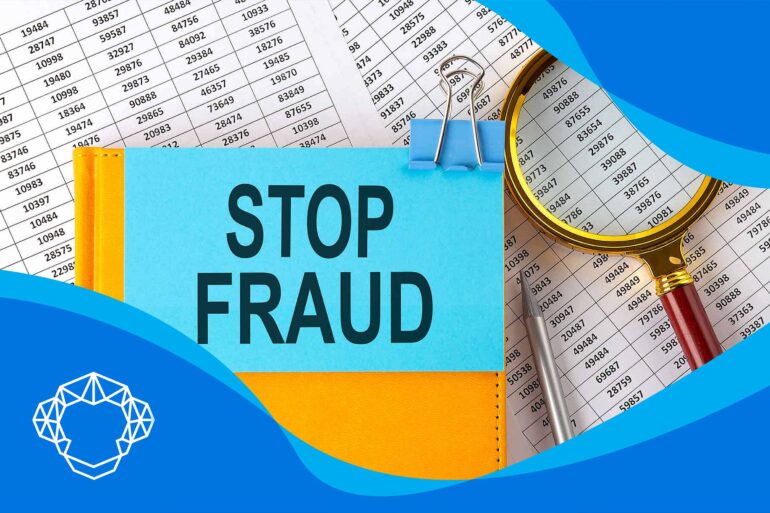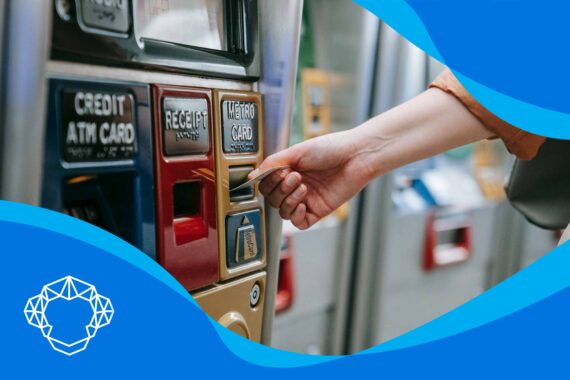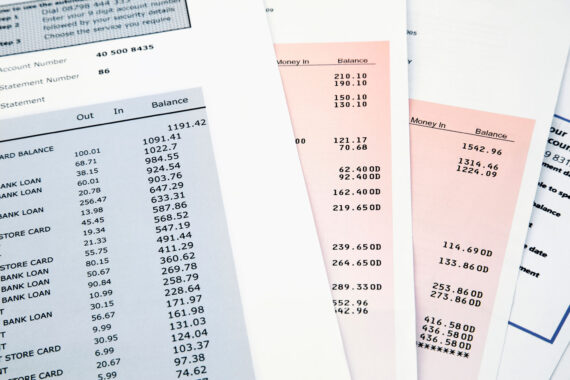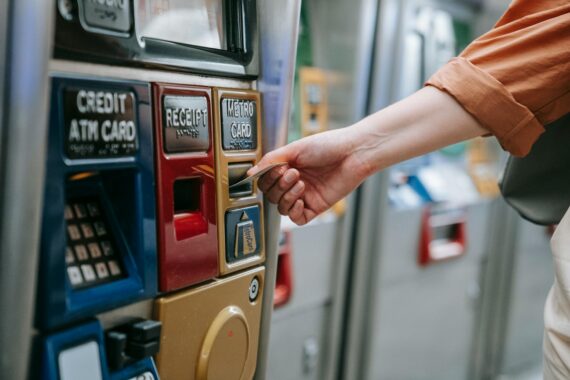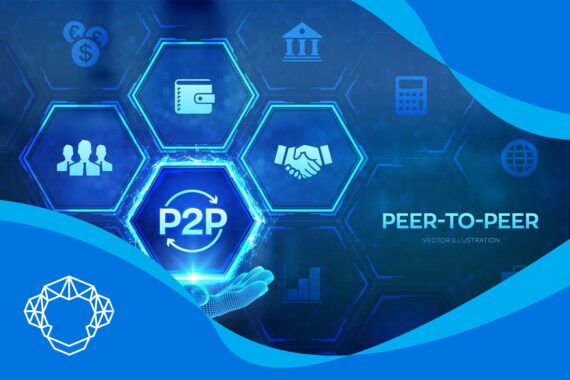As non-cash payment options have become more widespread, so have different types of fraud. This is why companies should stay alert for the latest scams that can befall their business. First-party fraud is one of these schemes you should be wary of, and to prevent it, you will need to understand it fully.
This type of fraud can present a significant threat to any business. Measuring the intent behind consumer actions often feels like a guessing game, especially when the losses in the US are projected to surpass $100 billion each year. On top of that, a surprising 77% of Americans believe there are circumstances under which first-party fraud should not be legally punishable. This only amplifies the need to protect your business from such occurrences.
What Is First-Party Fraud?
Let’s start with the first-party fraud definition. First-party frauds happen when an individual or a company provides false or misleading information to get an unlawful or unfair advantage. It may even involve using a synthetic identity (fake credentials that are not associated with a real person). It’s mostly common with bank, credit, and government loan applications because that’s where people attempt to get lower rates by providing false information about income or employment.
It can be opportunistic or organized, and the differences are clear. Opportunistic fraud happens when an individual carries it out, while a fraud ring on a larger scale does organized fraud. While both can bring losses, organized scams are far more hurtful and can lead to major losses. Such criminal rings can relieve companies of large sums of money and are less likely to be identified and caught.
First-Party Fraud Scheme Examples
35% of Americans polled said they had committed first-party theft. Of those who had, 34% said they did it because they had trouble with money. However, there is more than one type of first-party fraud that can negatively impact credit companies, financial institutions, and merchants:
- Government loan fraud happens when scammers present false information about themselves in order to gain from government stimulus programs or loans. The Paycheck Protection Program (PPP), which was set up during the COVID-19 outbreak, was often abused in this way.
- Bust-out fraud happens when a fraudster applies for credit and uses that same account to build their credit profile, and it can go on for months or even years. Once they manage to max out their credit, they disappear completely – “bust out.”
- Chargeback fraud happens when a shopper purchases something with their credit card, and then makes a claim to the credit card company that the transaction was fraudulent in an attempt to get their funds back unlawfully.
- Fronting scam happens when an individual uses another person’s identity to open an account or access a service just to give themselves a financial advantage. This fraud might be used, for example, to get lower insurance rates.
- De-shopping happens when a shopper makes a purchase, uses the items or items, and returns them to get a refund.
- Goods lost in transit fraud (GLIT) happens when a shopper buys something online but later claims the goods were not delivered in order to get a refund.
22% of Americans polled said that they asked for a refund on an online purchase even though the item had been sent, which was the most common type of first-party fraud. This was followed by deciding not to pay off credit card bills for an indefinite amount of time (21%) and disputing legal financial transactions (20%).
Is This Type of Fraud a Felony?
Yes, first-party fraud is a form of fraud and is generally considered a criminal offense. In many places, it becomes a felony if it involves a significant amount of money or is part of a larger scheme. However, the classification and punishment can largely depend on the location and details of the crime.
Based on a study by Socure, consumers with a history of first-party fraud are significantly more likely to commit it again if given the opportunity. More specifically, those with two or more closed accounts due to fraudulent disputes are 189 times more likely to commit it again. Additionally, accounts that have five or more registered authorized users are 22 times more likely to be associated with this type of fraud. In the same study, it was found that 30% of consumers who held accounts across at least four different financial institutions committed it.
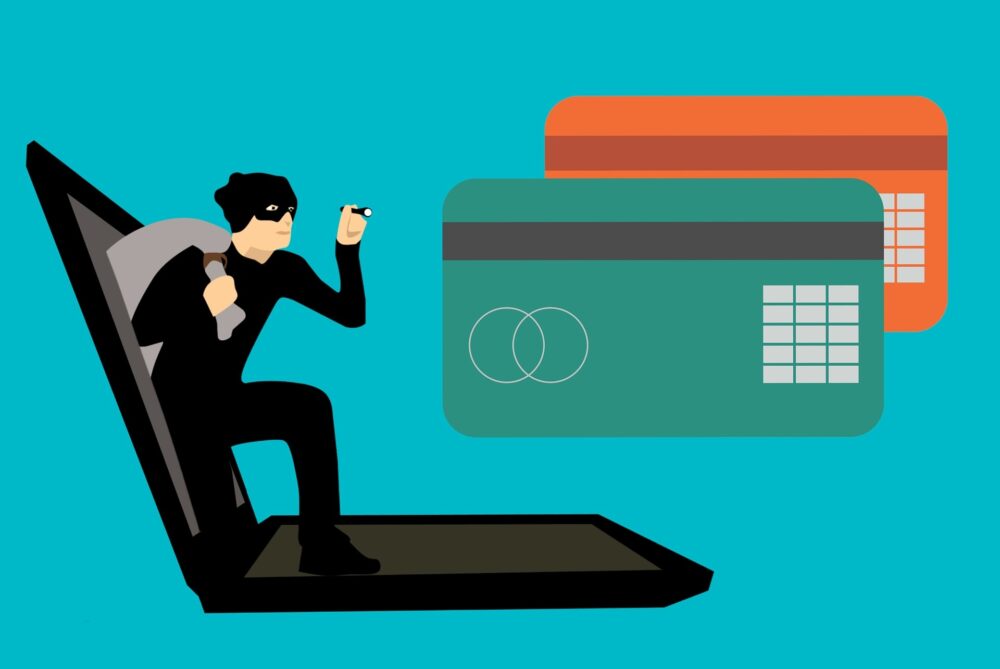
How Big of an Impact Can It Leave on a Business?
From merchants and their merchant accounts to financial institutions, this type of fraud can go unnoticed but it can accumulate or take on a larger scale and make a severe impact. Keep in mind that financial losses directly affect a company’s bottom line and can even lead to bankruptcy in severe cases. Scams like chargeback and promotion abuse can also harm a business’s reputation and lead to a loss of trust among customers and partners.
It’s also important to keep in mind that prevention and detection also increase costs, as businesses need to invest in new fraud detection technology and allocate staff hours to investigate suspicious activity. Sometimes, they need to hire additional staff to monitor accounts and transactions.
However, hiring a reliable credit card processing company can help merchants manage and avoid first-party fraud. Besides merchant services and credit card processing, such companies offer advanced detection tools and technologies.

Differences Between First-Party, Second-Party and Third-Party Fraud
Individuals or criminal rings can take advantage of vulnerabilities in many ways, and it takes a deep and thorough understanding of many types of fraud to detect and prevent them. The table below shows the distinct differences between first-party, second-party, and third-party fraud.
| Type of fraud | Definition | Examples | Challenges |
|---|---|---|---|
| First-party | Individual or ring that uses their identity to deceive a business for personal gain | Credit card fraud, Identity theft, Loan fraud using false information | Perpetrators may appear legitimate initially |
| Second-party | Illegal cooperation between a member of a company and an external party | Employee conspiring with a supplier to inflate invoices, Siphoning funds | Detection is hard because of their insider knowledge and access to sensitive information |
| Third-party | External parties commit fraud against a business or customers | Phishing scams, Counterfeit goods, Impersonation of a legitimate company | Fraudsters change methods frequently so it's hard to detect them |
First-Party Fraud Detection
To detect this type of fraud, you can use several different techniques that combine old and new tools. For instance, fingerprints or facial recognition for biometric verification make sure that the people making transactions or starting accounts are who they say they are. This is very important for keeping up with PCI compliance when it comes to cashless payments through merchant services.
Device fingerprinting analyzes the browser type and IP address but also the operating system of a customer’s device to find out more about them and help stop theft. This method works especially well for card-not-present situations, where it isn’t possible to verify information physically.
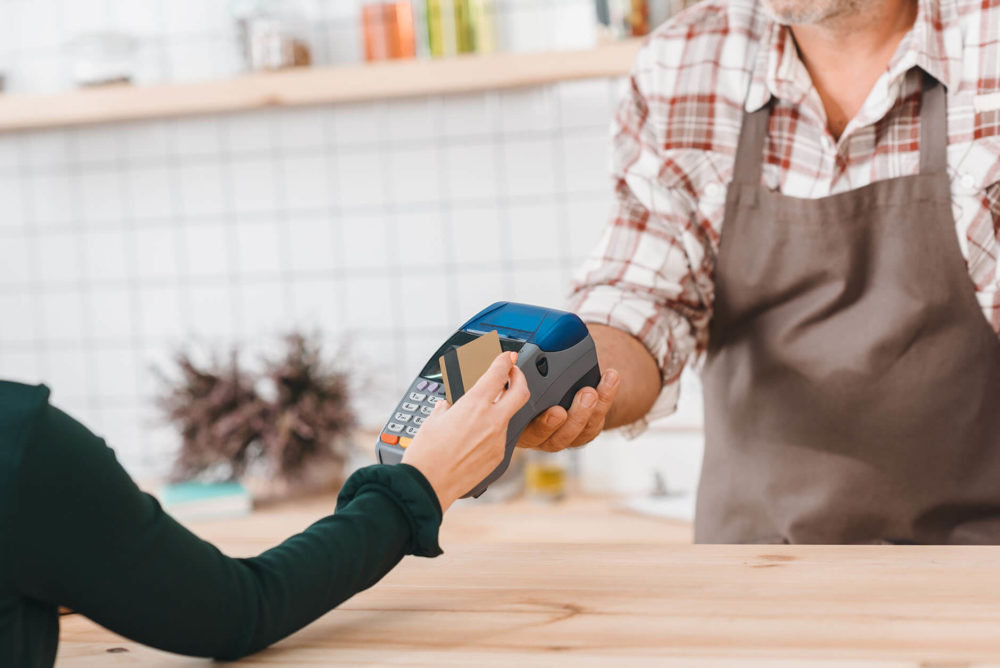
How to Prevent These Types of Fraud
Both merchants and credit card processing companies are aware that this type of fraud is a growing threat. While large enterprises might feel less intimidated by them, it can severely hurt small businesses. However, prevention is extremely important with any type of fraud, so let’s discuss some steps you can take to guard your business against them.
No.1 – Implement Identity Verification Processes
The first step any merchant using credit card processing services should take is to use document verification, multi-factor authentication, and other sophisticated types of verifying information. The theft is less likely to happen to businesses that ask customers for more than one type of ID to prove who they are. Advanced verification processes (like checking CVV) allow businesses to be more PCI compliant and prevent fraud.
No.2 – Regularly Update and Monitor Client Information
Another step in successful prevention is to keep customer profiles up to date and regularly check them for any strange or suspicious activity. Regular data and behavior reviews can help a merchant find problems right away and take action.
No.3 – Use Fraud Detection Technologies and Tools
Analyzing transaction data and noticing suspicious and fraudulent activity may not be as simple as it sounds. You will need to use advanced tools for finding fraud and machine learning algorithms to be successful in the search. These tools can find anomalies and possible cases of first-party fraud right away. This way, a business is more likely to improve its efforts to stop credit card scams and lower the risk of expensive chargebacks.
No.4 – Train Employees on Awareness and Prevention
Keeping the workplace safe is also important, so it’s crucial to teach workers about the different kinds of first-party fraud and just how important security protocols are. Regular training should focus on staying alert, following security protocols, and reporting any strange behavior right away.
No.5 – Establish Strict Internal Controls and Audits
Internal safety is another important step in fraud prevention, and this means putting in place strict internal controls. These controls should include things like separate tasks and regular audits. Dividing duties among workers will make sure no one individual has full control over financial transactions, making it harder for scams to happen in the first place. Regular audits help keep things honest and open, which shows that the company is serious about legally doing business.
No.6 – Collaborate With Industry Partners
In the end, it won’t hurt if merchants and industry partners work together on prevention. They should share best practices that work for them, information about known fraudsters, and all about new trends when it comes to fraud. This method of working together builds a system of defense that includes many companies, and it can especially help small businesses.
Protect Your Business With Merchant Chimp
While this type of fraud may not seem so damaging to a business as other types of scams, it can be a pretty significant threat. When a merchant fails to recognize and prevent such occurrences, it can lead to financial losses, reputational damage, and increased operational costs.
If you want to protect your business from this growing threat, hire professionals. If you also want to receive different services, such as a free POS system, credit card processing, and even a discount program, Merchant Chimp is a great solution. Our services and expert support will help you secure transactions and maintain customer trust. Contact Merchant Chimp today to learn how we can help keep you safe and enable a seamless payment processing experience.

